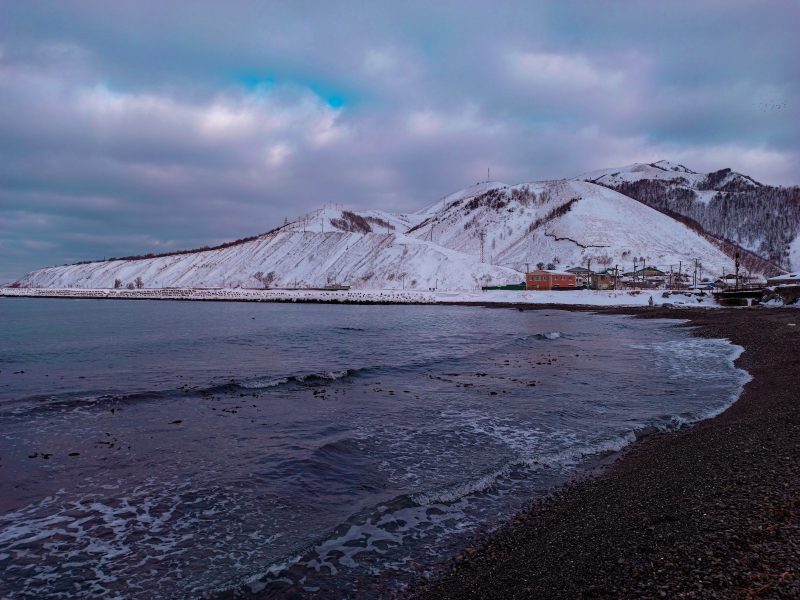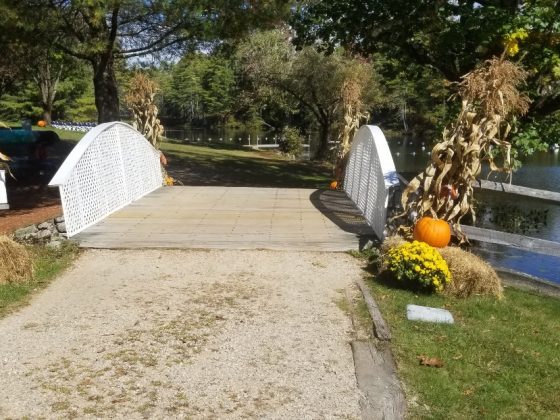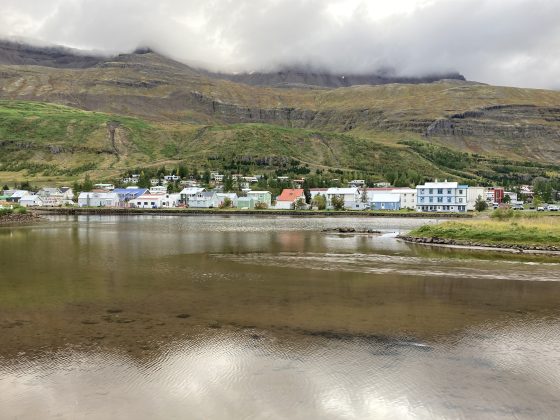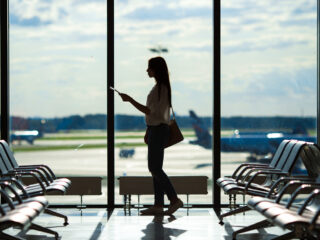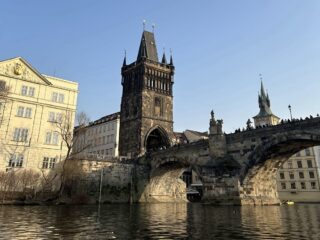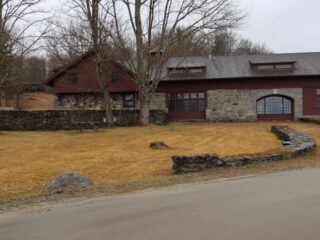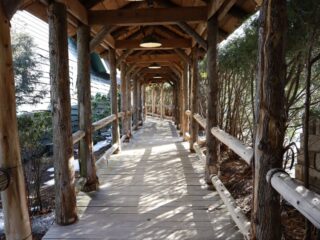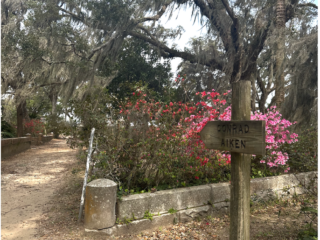By Judy Dercksen
Chekhov’s travels as a young doctor led him to Sakhalin. His description should have put me off any idea of visiting the Russian island: “I have seen Ceylon, which is paradise, and Sakhalin, which is hell.” Of course, his words served only to incite my imagination, which was why I was cooped up on the tarmac of Khomutovo airport, thirteen hours after lifting off from Domodedovo Mikhail Lomonosov International.
A squirming rooster, incensed at the hour-long wait to disembark, squawked on the lap of a doubly coated, sturdy Russian woman. I could’ve been back home, in Johannesburg, sunny South Africa, lying next to my husband on our king-size bed. Instead, here I was, in February 2002, a month after accepting this job—lead emergency physician—on a desolate island on the other side of the world, in another hemisphere. Panic thrummed the cords of my heart, vibrating muscles beating as fast as a hummingbird’s wings.
Shivers scuttled through my body. I hugged my arms over my chest. The idle turboprop Ilyushin would’ve been even colder were it not for the hot breath and body heat from 165 passengers and a bleating goat tethered to the aisle seat close to the cockpit, the door of which was open while the pilot, co-pilot and passengers engaged in a raucous debate, spurred on by inebriated passengers.
My father, a conservative Afrikaner, would not have approved of this adventure. He’d always ranted against communists and Russia in particular. Russia, in an attempt to spread socialism in Africa, had supported the African National Congress, the ANC, and the MPLA, the Angolan political party who fought against our white supremacist government and American supported Angolan political groups.
In 1994, Nelson Mandela and the ANC had won South Africa’s first free election. The ANC now governed South Africa, an unfolding of events that I believe hastened my father’s early death. I hoped if he were watching from some spiritual plane, he’d entered a realm of peace, perhaps some fourth dimension allowing him to understand the impulse that had landed me in a cool tin can on the runway of Yuzhno-Sakhalin.
My stretched bladder groaned. I craned my neck to see if there was anyone waiting at the toilet. I was about to risk facing the petri dish when the captain announced we’d been cleared to disembark. The flight attendant opened the door to cheering and whistling and soon I clambered down the steps, eager to escape the freezing February air. Although only four pm, it was already dark.
The cheerily lit terminal blinked a welcome through snow. I veered away from the line of passengers who seemed to be heading the wrong way.
“Nyet. Nyet.” A swarthy, dark-haired man, complete with a rifle slung over his shoulder, stopped me. He delivered rapid-fire gobbledygook and pointed at a ghoulish building. I trudged after my fellow passengers.
Inside, bulky coats pressed me against grey concrete blocks. The walls were low and a cruel wind blew through the wide opening over which teetered a corrugated iron roof, stalactites hanging from the edge like talons. I opened my mouth and an icy snowflake melted on my tongue.
After what seemed like a century, bags appeared on the creaking conveyor belt. The obstreperous beast belched loudly before grinding to a halt. Yells and muttering provoked the constipated contraption to evacuate more suitcases before it seized up again. And again. My bladder groaned a protest, the strained vessel on the precipice of releasing its contents when my luggage finally appeared.
In the parking lot, I looked around for a sign of a toilet. A young man caught my wild gaze. He sported a neat beard and wore a black fur hat and a thick woollen beige coat that reached his knees. His kind hazel eyes responded to my desperation.
“Doctor Judy?” His voice was heavily accented.
“Yes.”
“Boris.” He pointed to his broad chest. “I take you to office, yes?” He looked quite optimistic at the prospect.
“No!” I yelped. “Toilet first!” I pointed to the airport terminal.
“Nyet. Is for international travellers only. We go to office.”
Curses! I was sure I’d explode. I couldn’t imagine meeting my fellow co-workers when it was touch or go I’d be in a continent state. “No, we need to go to my apartment.”
He argued in halting English, but I was firm, and soon we were on our way to the expatriate community a little way out of Yuzhno. I can’t remember much of that first night on Sakhalin Island, only the exquisite relief of parking my buttocks on a cold plastic seat.
Slightly smaller and to the north of Hokkaido, Sakhalin is the 23rd largest island in the world, 589 miles long and 100 miles wide, housing half-a-million people. The sea of Okhotsk and the Tatar Straight separate it from Japan.
The morning after my arrival, a taxi took me from the expat village to the ISOS clinic. The international company provided medical care for employees of top global companies. In Sakhalin, two of them raced each other to extract oil and gas from the Sea of Okhotsk. Exxon Mobil was an American company. Sakhalin Energy consortium was run by Shell and Mitsubishi, Dutch and Japanese companies.
Ian, the manager, greeted me. He was a stocky, grey-haired, blue-eyed Scotsman, shorter than me. His hearty handshake and enthusiastic demeanor promised a good relationship. He didn’t waste time sitting around, instead taking me on a tour of the facility, which resembled modern clinics I’d seen in South Africa.
Bright posters with medical and industrial themes decorated the freshly painted white walls of the administrative offices, the small conference room, and medical offices. We walked over durable light grey carpet to Ian’s pride and joy, the clinic’s emergency room, kitted out with equipment to handle one or two casualties.
“Excellent,” I said. “Where do we manage patients we can’t treat here?”
“Any major incidents are transferred to Sakhalinskaya Oblastnaya Klinicheskaya Bol’nitsa.” He grinned at my frown. “Yuzhno’s government hospital. We work with their doctors to stabilize patients before arranging evacuation to Singapore, or Tokyo. Sometimes Hong Kong.”
I nodded, overwhelmed at the thought of the logistics involved in these operations. What had I let myself in for? I was in over my head!
The Russian doctors introduced themselves. Maria was about my age, late thirties, also married, and, like me, chunky with brown hair. She appeared thrilled to have another woman doctor around. Her two male colleagues, Alexei and Sergei, were devastatingly handsome and bound to be far too distracting. The administrative staff were also Russians, courteous but guarded.
Within days, my new Russian friends had dampened my fear down to a low key drone. They generously and graciously showed me the ropes until the work fell into the all too familiar routine of managing acute and chronic illnesses: hypertension, diabetes, back aches, infections, and mostly minor injuries. Beneath the surface, however, trouble brewed for my Russian patients.
The average life expectancy of Russian males—twelve years lower than that of American men—spoke of a life harsher than the Western world. South African males had an even lower life expectancy, men living on average to an age of fifty-seven because of dire poverty and its consequences, alcoholism and violence.
Sakhalin folk also drank unsafe amounts of alcohol. In Russia, vodka seemed cheaper than water. I attempted to counsel the clinic’s patients, suggesting a myriad of ways they could lower their risks of liver, cardiac, nerve, and heart disease, but my new Russian friends warned me I was wasting my time. Like Chekov, they may have felt the more remedies, the less likely a condition could be cured.
Doctor Maria and I spent many lunches together, usually at the company canteen, but one afternoon we sat in a café, eating borscht and freshly baked bread. Two women walked past, striding in high leather boots down the icy street. Despite the freezing cold, they wore mini skirts, their thighs flashing seductively from shiny fur coats.
I’d learned from Maria that all Russian doctors received one hundred dollars a month, regardless of how well-qualified they were. She’d told me families shared apartments, often three couples living in one. Knowing how much less they earned than me, I was surprised at the luxurious clothing.
“I can’t believe those coats!” I said.
“They’re called shubas. The fur is from fox, rabbit, beaver, or chinchilla.”
I’d never wear a fur coat, but I was guilty of being a meat eater, so I could hardly blame these women for choosing attire so suited to the harsh winters.
“How can they afford them?” I immediately blushed, cursing myself for not thinking before speaking.
Maria pushed her bowl to the side. “We had a financial crisis in 1998, the ruble crisis. Our government and banks devalued the ruble and people lost all their savings.” She flattened her immaculately ironed navy skirt with the palm of her hand. “Now most women rather spend their money on clothes and shoes and the men spend it on women and vodka.”
“I’ve noticed that the men don’t smile much. It’s quite different from South Africa.” The black patients and nurses I’d worked with were loud and joyous.
“In Russia, smiling is a sign of weakness. Of fear.”
I laughed. “You must think me, scared silly, then.” It wouldn’t have been far from the truth. I do have anxiety. Am I a good enough doctor? Would I make a mistake and cost someone their life? Do people recognize how at odds with the world I am? My social anxiety had led to social isolation. I was surprised to find myself with a friend and happy to have Maria’s company.
Maria invited me to her apartment. On the outside, the brick building’s bottom borders were laced with ruffles of disintegrated concrete. Inside, faded lime plaster blistered and cracked, grey seams reaching up like branches from a parched tree. Overhead, industrial heating ducts, and, against the walls, exposed plumbing pipes.
Her apartment, however, was warm and cozy and much like any modest flat for middle-class families I’d seen in South Africa, the major difference in Yuzhno, two or three families lived in one flat. At least in Sakhalin, there was no sign of ghetto townships or evidence of the starvation rampant in Gauteng and the Cape Province.
In Yuzhno, the vast majority of its citizens lived with a low income, but they had access to food. Rich people were invisible in the city. I saw no sign in post-communist Russia of the obscene luxury so patently obvious in South Africa, the super rich still very evident even in post-apartheid South Africa.
A few days before I left Sakhalin for a two-month break, Maria took me to a recently abandoned TB clinic, situated out of town like a solemn pariah. Its mournful porches were overrun with ambitious ivy and industrious weeds. I imagined patients sunning on the porches, waiting out their sentence in the white building, prisoners of a bacterium that thrived on poverty and a diet of alcohol.
This was the first sign of poverty in Sakhalin, this same bacterium that invaded the townships, the mining hostels, and other underprivileged areas of South Africa. On my flight back to Johannesburg, I thought of the similarities between our countries. The difference in Russia was a level playing field for the vast majority of citizens. Here was not a three-hundred-year legacy of systemic attack against countrymen because of the color of their skin.
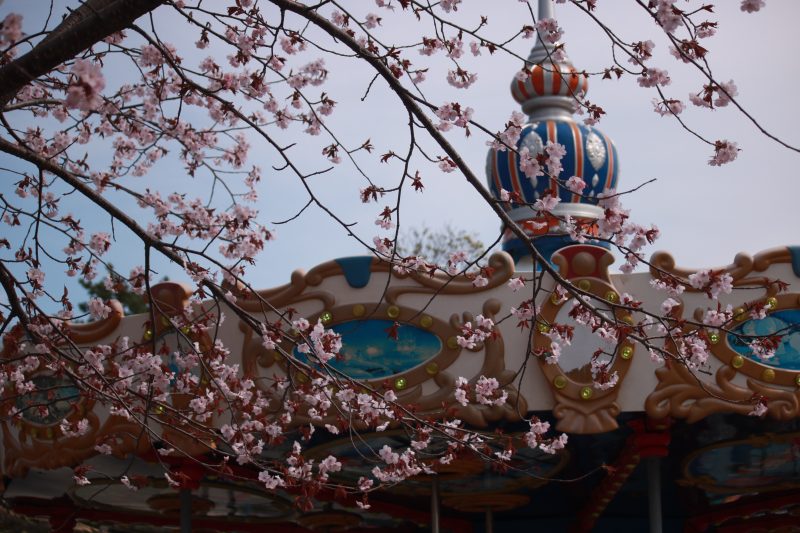
Four months after I’d first arrived in Sakhalin, I began my second tour of duty. It was Spring, the weather perfect for strolls in the countryside away from the expat village, away from the large, gated compound, with the generic American-styled houses and apartments, all clothed with beige, taupe, and grey siding.
Winding secondary roads led me past farmhouses to the Saturday market which bustled with pedestrians, vendors, bicycles, Ladas and other small cars. Farmers displayed gigantic watermelons, pumpkins, plump strawberries, and verdant greens sprinkled with morning dew.
The smell of freshly baked bread drew me into one of the few permanent structures, a small bakery. In the dimness, beyond the smudged windows, the dark wooden shelves were sparsely populated. A dour faced woman stood behind a high counter, her arms crossed over an ample bosom. She glowered at me.
“Dobroye utro,” I stuttered.
“Da ?”
I floundered, synapses firing in a desperate search for the word ‘need’ or ‘want’ and came up empty. “Khleba?” I blurted the word for bread.
The glower hovered.
I tried again. “Khleba, pozhaluysta.” Of course I loved the word for please, not only because I was a people-pleaser by nature, but because the sound rolled from the tongue and left the mouth like a melody.
Her frown lifted. She pointed to a loaf of bread, large enough to feed half of Lenin’s army.
“Malen’kiy, pozhaluysta.” I was hoping for a bread roll.
She reached behind the counter, returned with a smaller loaf of bread, and smacked it down, causing a flour storm to rise from the wooden counter.
I beamed. “Khorosho.” My Russian tutor would be euphoric.
The baker’s demeanour changed to that of a proud mother. She helped me count out my rubles, covering my hand with one of hers once she’d extricated the exact amount.
“Spasibo,” I yelled happily on my way out. The expats I’d spoken to had complained about ‘unfriendly locals,’ but I hadn’t had that experience.
I thought of my Russian tutor. “These expats. They expect us to speak English, but they refuse to learn any Russian,” she’d complained.
The smell of garlic, fermented vegetables, fish and onion drew me to my final destination, the Korean market, with wheeled carts displaying colorful food. I hesitated, unable to decide on a single dish. Sellers assured me the fish had been caught that morning from the Sea of Okhotsk. I left the market with a bag of banchan—a cornucopia of dishes, from fish soup to fermented cabbage and radish.
Back in my two-bedroom apartment on the ground floor of a three-storey building, I tried the banchan, the one dish, noodles and vegetables, so spicy it cleared my sinuses and boiled the CSF in the ventricles of my brain. The food was likely an acquired taste, I’m sure, but I didn’t risk trying it again.
There are many Korean residents and Russian citizens of Korean descent living on the island who identify themselves as Koyro-sara, many of them descendants of coal miners, recruited by the Japanese in the 1910s. At that time, Sakhalin was known as Karafuto.
At the end of WWII, the Soviet Union reoccupied the island. It became a site for highly secret air and naval bases, the place from which, in 1983, a heat-seeking missile had been launched to incinerate 269 passengers travelling off course in a Korean airline.
After the 1991 Soviet collapse, Yeltsin and Putin pretty much abandoned the bases, leaving them to rust in peace while they pursued more lucrative options—offshore oil and gas drilling. The highest stakeholders in the venture were the European and American companies, Shell and Exxon Mobil. Shell was responsible for one of my greatest adventures.
During my stay in 2002, Sakhalin Energy decided to expand their operations. The company planned to lay an 850km fibre optic cable from Yuzhno to the Kholmsk Western Port. The major obstacle was a large area of land that first needed to be de-mined.
Thousands of landmines, (known as UXOs, or unexploded ordinances), left over from the 1905 Russian-Japanese war, threatened the safety of the operation. Shell asked Yuzhno medical clinic to prepare a special emergency medical response, one that would mitigate the downstream consequences of their plans backfiring, literally and figuratively.
One of Shell’s chief executives, Hans, met me in Ian’s office. I’d met Hans before in the expat village. He and his wife had invited me for dinner on a couple of occasions.
Hans told me Shell was donating a helicopter to the Yuzhno clinic. He wanted me to outfit the aircraft into a flying ambulance. I hadn’t the foggiest idea how to equip an ambulance, never mind a helicopter, but I was hardly going to tell the big chiefs. When he suggested we drive to the airport to inspect the new acquisition, I insisted the Russian doctors come along.
The grey helicopter nestled on a shorn green lawn like a hibernating beast. My heart galloped in my chest as I entered its empty belly, but soon my colleagues and I set about measuring and planning; our vision: a transport vehicle capable of providing essential primary medical care.
I had a sudden impulse to fly in a Russian helicopter. Chekhov’s words inspired me, “Foolishness is a great deal more vital and healthy than our straining and striving after a meaningful life.” Less interested in outfitting the helicopter than my personal ambition, I approached Ian with a plan to stage a mock emergency drill, one that would convince Shell of our readiness to assist them should a disaster strike. Ian eagerly agreed.
In preparation for the final drill, I convinced the company to rent a helicopter. They arranged a trip in a Mil MI 28, the helicopter Americans called ‘Havoc.’ In the dim confines of the Russian helicopter, similar to the ones that had patrolled and even crossed the Okavango River, the river separating Angola from South West Africa, now independent Namibia, I rattled and roared high over the untrampled fields and untended land of green bush and trees, land too dangerous to cross since the invasion of Sakhalin in the last part of the Russian-Japan war.
We ran the final exercise a few days later, the day before I was to depart Sakhalin. The ISOS Singapore, Hong Kong, and Tokyo branches participated, while Moscow and Philadelphia listened in. I wished I could join my comrades in the helicopter, for another glorious trip, but of course I’d placed myself in the role of conductor and communicator. When the mock call of the mass casualty came through, Boris started the clock, and off we went.
The Russian doctors ran to the minivan and Boris sped off to the airport. I contacted Singapore, Hong Kong, and Tokyo to warn them of impending casualties. It was marvelous. Like a staged opera, each note falling at exactly the right moment, people moving around as if they’d rehearsed it a thousand times before. While the helicopter flew off to the site of the mock disaster, Ian and I organized the clinic to accommodate mass casualties, ready to triage patients and transport them to their designated facilities. The program went off without a hitch. Everyone played their part perfectly. I couldn’t have been happier.
Ian was thrilled at the outcome. I didn’t tell him my real motivation, that had I not been thinking selfishly of a ride in a Russian helicopter, I’d never have even thought of a disaster protocol.
On my way home, we passed high over the Sea of Okhotsk, where offshore rigs pumped gas and oil, the black gold lining the pockets of ultrarich foreigners, Russian politicians and oligarchs. On the other side of the world lay Johannesburg, a city of towering glass and concrete skyscrapers, where nearby underground mines delivered yellow gold, diamonds, copper, and chrome, riches that created middle- and upper classes, and the super rich bracket.
The air steward offered me a glass of wine, my first drink in two months. I quaffed the warm liquid, barely tasting it, and awaited the delicious swirly, woozy feeling. When she handed me my dinner, I asked for another glass of wine.
I sipped my drink this time, feeling guilty as I thought of all my lectures on the dangers of alcohol. My thoughts, blurred and fuzzy, travelled back to Chekhov. I too, didn’t understand the purpose of all this suffering, the why, but for now I would live . . . and work, just work.
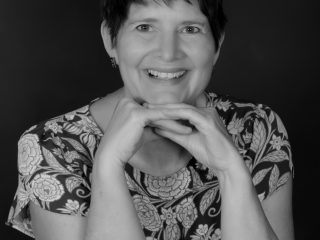
Judy is a family physician, passionate about complex PTSD and chronic pain. She is at her most comfortable at home, in sweats, writing, spending time with her husband, and keeping her bearded dragon company. She shares her experiences and knowledge on her website, https://painimprovement.com

